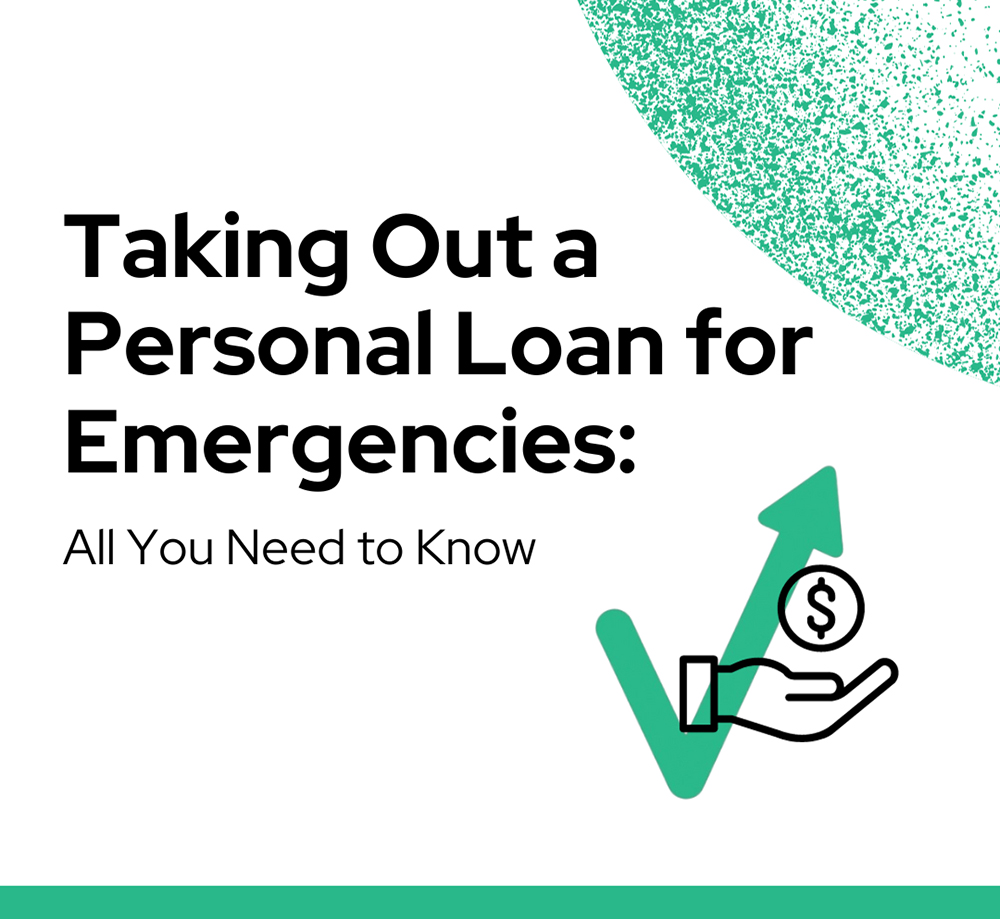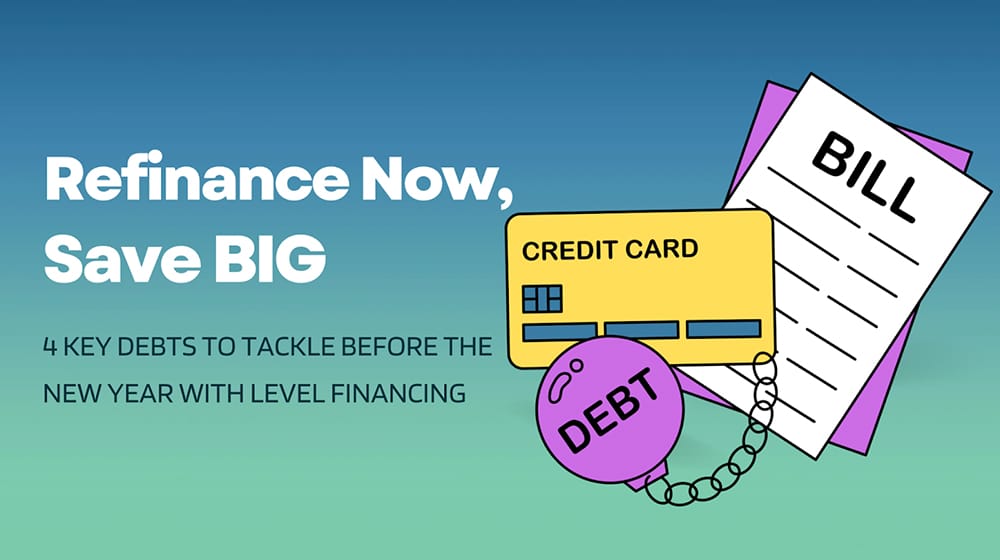Unexpected expenses can throw your finances into disarray. Your car breaks down, a medical emergency arises, or you lose your job. What do you do when your savings can’t cover the costs? A personal loan may help you get through a difficult situation.
But before taking out a personal loan for emergencies, understand what’s involved so you can make the best decision.
When to Consider a Personal Loan for Emergencies
A personal loan can provide funds when you have an urgent need but lack the money on hand. Here are some common emergency situations where a personal loan might make sense:
- Out-of-pocket medical bills not fully covered by health insurance – These can easily run thousands of dollars for hospital visits, surgeries, or extensive procedures.
- Major home or auto repairs – If your roof starts leaking, the hot water heater needs emergency replacement, or your transmission fails, repairs can require several thousand dollars quickly.
- Funeral and burial costs – Sadly, final expenses for a loved one typically come unexpectedly. These bills add up fast.
- Job loss leaving you unable to pay monthly bills – The loss of a steady paycheck can quickly put you in financial jeopardy. A loan may cover the basics until you find new work.
- Other pressing expenses – Unexpected events like a major appliance failure or legal issues can also create the need for quick access to extra money.
Key Takeaway: Considering an emergency personal loan makes sense for large, pressing expenses that exceed your current financial means. But it also piles on debt obligations that must be repaid.

Understanding the Application Process
Applying for a personal loan involves providing information about your finances. Requirements typically include:
- Identification and contact information
- Income and employment details
- Monthly expenses and debts
- Credit history and score
This allows the lender to verify your ability to repay the loan. Good credit means better chances of approval and lower interest rates. Be ready to supply supporting documents.
Level offers an uncomplicated online application process and loans at incredibly favorable conditions. Apply today and get a quote right away.
Key Takeaway: The loan application requires disclosing detailed financial, employment, credit, and identity information so lenders can fully verify and evaluate your ability to repay.
Evaluating Interest Rates and Loan Terms
All personal loans charge interest and fees, but offers can vary widely between different lenders. Carefully compare total costs and terms among a few lenders to find affordable options:
- Weigh interest rates and origination fees – Lower rates reduce your total interest costs over the loan. But watch for high origination or processing fees that get tacked on.
- Consider longer repayment terms – This lowers your minimum monthly payment amount at the cost of more overall interest paid over time.
- Be cautious with variable rates – They start lower but can eventually increase, making the loan more expensive.
- Look for flexible repayment and early payoff options – Prepayment penalties lock you in, while flexible payments help manage cash flow.
- Review total interest and principal paid – Run the calculations for a complete picture of costs.
- Read all fine print for hidden details – Some lenders sneak in higher costs like late fees or minimum finance charges.
Doing diligent research and number crunching helps you secure the most favorable interest rate and repayment terms so monthly payments don’t become unmanageable. A few percentage points on a rate or small fee difference can really add up over years of payments.
Key Takeaway: Carefully comparing loan options, including rates, total costs, fees, and repayment terms, is key to finding manageable and cost-effective financing rather than simply jumping on the first offer.
Pros and Cons of Personal Loans
Before committing to a personal loan, weigh the potential benefits versus the risks and costs:
Pros:
- Quick access to lump sum cash – Funds can be available in days after approval compared to weeks with other options.
- Fixed predictable payments – Interest rates and monthly payments remain consistent over the full repayment term.
- Typically, no collateral is required – Loans are unsecured by personal assets like your home, freeing those up for other needs.
- Can help avoid credit damage – Making on-time payments builds your credit score. Late mortgage, credit card, or other bills hurt it.
- Convenient application process – Many lenders allow fast online applications and electronic document submission.
Cons:
- Interest payments increase the total amount owed – You may pay thousands in interest on a multi-year loan.
- Origination/processing fees add up – Lenders often charge 1-5% origination fees for underwriting costs.
- Missed payments hurt credit – Delinquent loans show up worse than other credit events in your history.
- The loan remains if the emergency persists – The debt continues even if the loss of a job or other crisis extends beyond the loan term.
- Opportunity costs – Money going to pay interest could be invested or put in savings.
Key Takeaway: Personal loans provide fast cash but also introduce new debt that makes finances more difficult if not repaid promptly.

Managing Loan Repayment
Budget for loan payments to avoid late fees and credit impacts:
- Automate payments from checking to avoid forgetting
- Pay more than the minimum when possible to pay down faster
- Track balance and interest costs monthly
- Adjust expenses if needed to ensure on-time payments
Wisely Managing repayments is key to avoiding spiraling debt problems.
Key Takeaway: Careful budgeting and discipline help manage personal loan payments so debt doesn’t grow.
Alternatives to Personal Loans
Other options may work better for some situations:
- Emergency fund – Self-funding with savings avoids debt
- Credit cards – Short-term flexibility but high rates
- Family/friends – Zero interest but can strain relations
- Home equity loan – Lower rates but uses home as collateral
Evaluate if alternatives align better with your circumstances.
Key Takeaway: Other finance options like credit cards or emergency funds may cost less than personal loans in some cases.
Read More: Is a Personal Loan Better than a Credit Card?

Personal Loan for Emergencies: Final Thoughts
At some point in life, a major unexpected expense will likely arise that your usual income and savings cannot immediately cover. While a personal loan allows fast access to lump sums of cash for pressing needs, the interest, fees, and inflexible payment terms make this option expensive compared to saving up your own money over time.
Still, personal loans may make sense for certain emergency situations after you’ve exhausted safer alternatives. Weigh the benefits and costs carefully based on your situation. Exhaust savings and other options first, if possible. Shop for the best rates. Then, budget diligently to repay the debt on time once approved.




